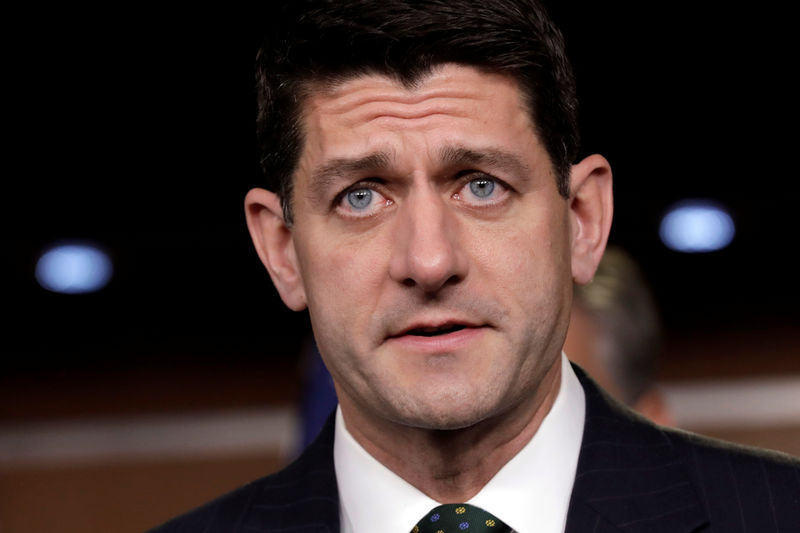WASHINGTON (Reuters) - Republican House Speaker Paul Ryan has told confidants he would like to retire after the 2018 congressional elections, Politico reported on Thursday, but the Wisconsin lawmaker and an aide played down the report, saying he wasn't quitting any time soon.
"Ryan has made it known to some of his closest confidants that this will be his final term as speaker," Politico said.
Politico said it interviewed three dozen people who knew Ryan - including lawmakers, congressional and administration aides, conservative intellectuals and Republican lobbyists - and that "not a single person believed Ryan will stay in Congress past 2018."
White House spokeswoman Sarah Sanders said President Donald Trump had spoken to Ryan "and made sure that the speaker knew very clearly and in no uncertain terms that if that news was true, he was very unhappy with it."
"The speaker assured the president that those were not accurate reports and that they looked forward to working together for a long time to come," Sanders said.
Ryan is a long-time champion of tax reform who has helped bring Republicans in Congress to the cusp of a tax overhaul for the first time in a generation. If passed, it would be Trump's first major legislative victory since he took office in January despite being helped by Republican control of Congress.
When asked by reporters on Thursday if he was planning to quit, Ryan said with a chuckle: "I'm not, no."
Asked later about the Politico report, Ryan spokeswoman AshLee Strong did not directly deny it, instead saying: "This is pure speculation. As the speaker himself said today, he’s not going anywhere any time soon."
Ryan would be unlikely to publicize any planned departure because it could hurt his fundraising capacity on behalf of fellow Republicans and undercut his ability to make deals in the House of Representatives.
A budget hawk who was Mitt Romney's vice presidential running mate in 2012, Ryan reluctantly took over as speaker in 2015 following the resignation of John Boehner, who had held the post since early 2011 after Republicans won control of the chamber from Democrats.
Boehner's tenure as speaker was marked by fractious divisions among competing groups within the Republican Party. Ryan has tried to move the party beyond those disputes with only limited success.
Party divisions earlier this year prevented Republicans from delivering a promised overhaul of healthcare legislation, and the path toward tax reform has also been complicated by internal disagreements and intense lobbying from industry groups.

